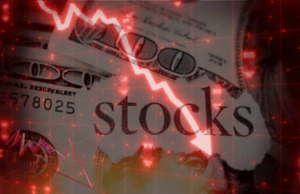
US stocks plunged on one of their worst days of the year after the Federal Reserve suggested on Wednesday that it may deliver less adrenaline to the US economy in 2025 than expected.
The S&P 500 fell 2.9%, just shy of its biggest yearly decline since the summer and well off its all-time high set a few weeks ago. The Dow Jones Industrial Average lost 1,123 points, or 2.6%, and the Nasdaq Composite Index fell 3.6%.
The Fed announced on Wednesday that it was cutting its benchmark interest rate for the third time this year, continuing a sharp turnaround that began in September when it began cutting rates from two-decade highs to support the job market. However, the decline was widely expected.
The biggest question is how much more the Fed will cut rates next year. A lot depends on that, especially after expectations of a series of declines in 2025 helped the US stock market hit an all-time high at least 57 times by 2024.
Fed officials released projections on Wednesday that showed the median expectation was for two more cuts to the federal funds rate in 2025, equivalent to half a percentage point. That’s down from the four cuts expected three months ago.
“We’re in a new phase of the process,” Fed Chairman Jerome Powell said after the central bank quickly lowered its key interest rate since September by a full percentage point to a range of 4.25% to 4.50%.
Asked why Fed officials were looking to slow the pace of cuts, Powell pointed to the fact that the labor market generally appears to be doing well and that inflation numbers have picked up recently. He also cited uncertainties that will force policymakers to respond to unspecified upcoming changes in the economy.
While lower interest rates can boost the economy by making borrowing cheaper and raising investment prices, they can also spur inflation.
Powell said some, but not all, Fed officials are also trying to address the uncertainties inherent in a new White House administration. Wall Street has grown increasingly concerned that President-elect Donald Trump’s focus on tariffs and other policies could spur more inflation as well as economic growth.
Powell remarked, “You go a little slower when the road is uncertain.” “It’s like driving in the fog at night or walking into a dark room full of stuff. We’re slowing down.”
One official, Cleveland Fed President Beth Hammack, said the central bank shouldn’t have cut rates this time. She was the only one to vote against Wednesday’s rate cut.
Diminishing expectations for a rate cut by 2025 have pushed Treasury yields higher in the bond market, weighing on stocks.
The yield on the 10-year Treasury note rose to 4.50% from 4.40% late Tuesday, a notable move for the bond market. The two-year yield, which more closely tracks expectations for Fed action, rose to 4.35% from 4.25%.
On Wall Street, stocks of companies that are more likely to be pressured by rising interest rates saw some of the biggest losses.
Smaller companies, for example, have underperformed. Many have borrowed to fuel growth, meaning they can feel more pain from paying higher interest rates on their loans. The small-cap Russell 2000 index fell 4.4%.
Elsewhere on Wall Street, General Mills fell 3.1% despite reporting a higher-than-expected quarterly profit. The maker of Progresso and Cheerios soups said it would invest more in its brands to help them grow, prompting it to cut its profit forecast for the fiscal year.
Nvidia, a superstar that has helped drive Wall Street to record highs in recent years, fell 1.1%, extending a slump that has lasted several weeks. The stock has fallen more than 13% from its record high set last month and has fallen nine of the past 10 days as its strong rally has slowed.
On the winning side of Wall Street, Jabil jumped 7.3% to help lead the market after reporting better-than-expected earnings and revenue for its latest quarter. The electronics conglomerate also revised up its full-year revenue forecast.
The S&P 500 dropped 178.45 points to 5,872.16 overall. The Dow Jones Industrial Average fell 1,123.03 to 42,326.87, and the Nasdaq Composite Index fell 716.37 to 19,392.69.
Overseas, London’s FTSE 100 rose less than 0.1 point after data showed inflation rose to 2.6% in November, its highest level in eight months. The Bank of England will also meet this week to discuss interest rates and will announce its decision on Thursday.
In Japan, where the Bank of Japan is scheduled to conclude its monetary policy meeting on Friday, the Nikkei 225 fell 0.7%. That was despite a 23.7% gain in Nissan Motor Corp., which said it was in talks to work more closely with Honda Motor Co., although no decision has been made on a possible merger. Honda Motor shares lost 3%.
Nissan, Honda, and Mitsubishi Motors Corp., a member of the Nissan alliance, agreed in August to share electric vehicle parts such as batteries and jointly research autonomous driving software to better adapt to sweeping changes in the auto industry.







